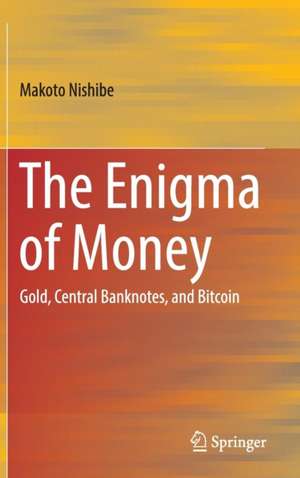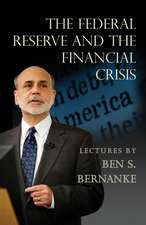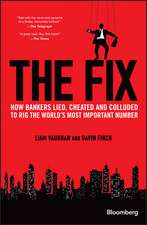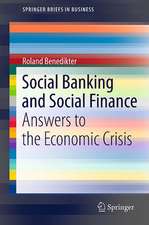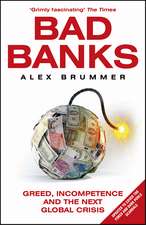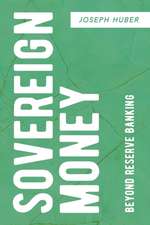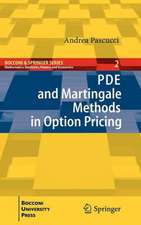The Enigma of Money: Gold, Central Banknotes, and Bitcoin
Autor Makoto Nishibeen Limba Engleză Hardback – 2 noi 2016
The central features of modern sovereign moneys seen in inconvertible IOUs of central banknotes can be depicted as “The Emperor's New Clothes” that correspond to the U.S. dollar and the Euro void of their own value. The image captures such characteristics of national currencies as “self-fulfilling ideas” by the inertia of conventions in the past and expectations of an uncertain future. Both ideas normally make money more acceptableand circulative so that its value can become more stable unless expectations for the future turn very pessimistic.
The same logic also applies to such other currencies as Bitcoin and community currencies. Their recent diffusion has shown that Hayek's idea of denationalization of money and competition between multiple currencies in terms of its qualities, not its quantities sought as in ongoing quantitative easing, become more relevant under current situations. The qualities of money refer not only to stable monetary values and low transaction costs, but also to high ability in creating, sharing, and communicating social and cultural value.
The potential of the logic of self-fulfillment of ideas can thus open up a new economic society when we realize that such various non-national currencies all depend on the same logic of money.
| Toate formatele și edițiile | Preț | Express |
|---|---|---|
| Paperback (1) | 574.76 lei 6-8 săpt. | |
| Springer Nature Singapore – 21 apr 2018 | 574.76 lei 6-8 săpt. | |
| Hardback (1) | 580.82 lei 6-8 săpt. | |
| Springer Nature Singapore – 2 noi 2016 | 580.82 lei 6-8 săpt. |
Preț: 580.82 lei
Preț vechi: 683.32 lei
-15% Nou
Puncte Express: 871
Preț estimativ în valută:
111.15€ • 116.87$ • 91.83£
111.15€ • 116.87$ • 91.83£
Carte tipărită la comandă
Livrare economică 16-30 aprilie
Preluare comenzi: 021 569.72.76
Specificații
ISBN-13: 9789811018183
ISBN-10: 9811018189
Pagini: 140
Ilustrații: XIV, 93 p. 5 illus., 3 illus. in color.
Dimensiuni: 155 x 235 x 14 mm
Greutate: 0.33 kg
Ediția:1st ed. 2016
Editura: Springer Nature Singapore
Colecția Springer
Locul publicării:Singapore, Singapore
ISBN-10: 9811018189
Pagini: 140
Ilustrații: XIV, 93 p. 5 illus., 3 illus. in color.
Dimensiuni: 155 x 235 x 14 mm
Greutate: 0.33 kg
Ediția:1st ed. 2016
Editura: Springer Nature Singapore
Colecția Springer
Locul publicării:Singapore, Singapore
Cuprins
Chapter 1: The Enigma of Money: If We Understand Money, We Will Understand Economy.- Chapter 2: Is Money a “Thing” or an “Event”? : Reconsidering Money and Market.- Chap 3: Money as “the Self-fulfillment of Ideas”: the Difference between Bank Notes and Bitcoin.- Chap 4: The Disease Haunting Money: Its Relationship to Bubbles.- Chap 5: Why is Capitalist Economy Unstable? On Hyperinflation and Speculation.- Chapter 6: The Crisis of Capitalism and the “Quality“ of money.
Notă biografică
Makoto Nishibe, Graduate School of Economics and Business Administration, Hokkaido University
Textul de pe ultima copertă
This book provides a new way of understanding modern money and markets by stressing their self-fulfilling/self-destructive properties as institutions from evolutionary perspectives. In contrast to an unrealistic view of the neoclassical general equilibrium theory that models the price mechanism of a “concentrated market” without using money, presented here is an alternative theory of markets on how a realistic “dispersive market” using a stock of money and inventory as buffers can work as a multilayered price-quantitative adjustment system.
The central features of modern sovereign moneys seen in inconvertible IOUs of central banknotes can be depicted as “The Emperor's New Clothes” that correspond to the U.S. dollar and the Euro void of their own value. The image captures such characteristics of national currencies as “self-fulfilling ideas” by the inertia of conventions in the past and expectations of an uncertain future. Both ideas normally make money more acceptable and circulative so that its value can become more stable unless expectations for the future turn very pessimistic.
The same logic also applies to such other currencies as Bitcoin and community currencies. Their recent diffusion has shown that Hayek's idea of denationalization of money and competition between multiple currencies in terms of its qualities, not its quantities sought as in ongoing quantitative easing, become more relevant under current situations. The qualities of money refer not only to stable monetary values and low transaction costs, but also to high ability in creating, sharing, and communicating social and cultural value.
The potential of the logic of self-fulfillment of ideas can thus open up a new economic society when we realize that such various non-national currencies all depend on the same logic of money.
The central features of modern sovereign moneys seen in inconvertible IOUs of central banknotes can be depicted as “The Emperor's New Clothes” that correspond to the U.S. dollar and the Euro void of their own value. The image captures such characteristics of national currencies as “self-fulfilling ideas” by the inertia of conventions in the past and expectations of an uncertain future. Both ideas normally make money more acceptable and circulative so that its value can become more stable unless expectations for the future turn very pessimistic.
The same logic also applies to such other currencies as Bitcoin and community currencies. Their recent diffusion has shown that Hayek's idea of denationalization of money and competition between multiple currencies in terms of its qualities, not its quantities sought as in ongoing quantitative easing, become more relevant under current situations. The qualities of money refer not only to stable monetary values and low transaction costs, but also to high ability in creating, sharing, and communicating social and cultural value.
The potential of the logic of self-fulfillment of ideas can thus open up a new economic society when we realize that such various non-national currencies all depend on the same logic of money.
Caracteristici
Gives fundamental and basic views on the evolution of money, particularly on its emergence, divergence, and self-fulfilling retention Considers money as a communication medium like language and sheds light not only on economic but also on cultural and social dimensions of money Provides many historical examples for understanding what an economic bubble is and how it is formed and collapses Includes supplementary material: sn.pub/extras
